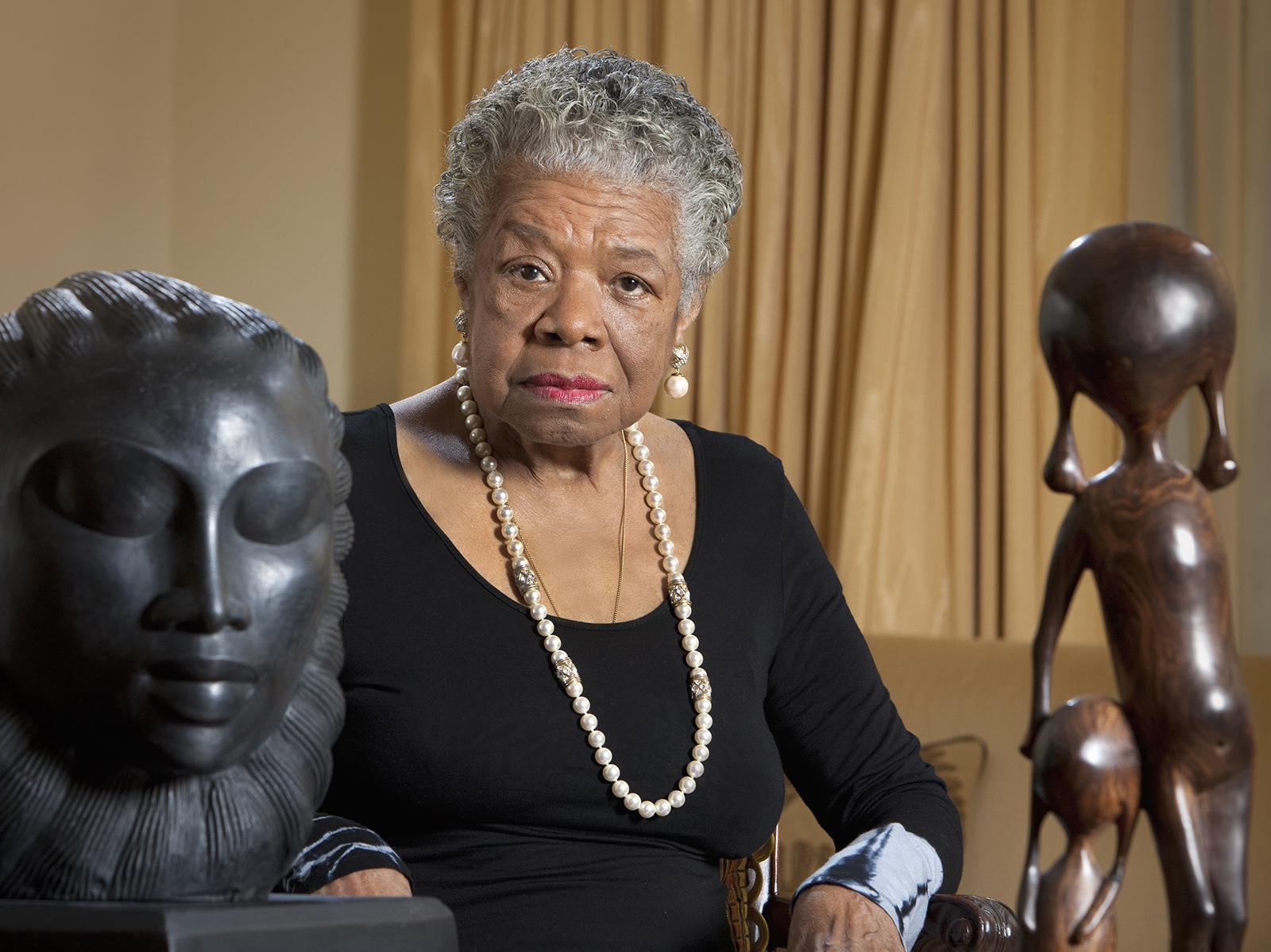by Steven Emmanuel Martinez
Don’t be fooled by these obituaries, flat articles, and impassive tweets that illustrate Maya Angelou as a goddess, a saint, saint-like, or some idol. Maya Angelou is not a saint. Immodest as she was, though, I believe she would scoff at the notion of being called a warrior or a goddess. Any illustration of her as a perfect woman destroys her legacy and everything she stood for.
Most people — those who are too lazy to read her memoirs, too dejected to listen to her poetry, and too bored to watch her speeches — have only been introduced to the “saintly” Maya Angelou. Instead of realizing her complexity, I fear that the things that made her great are being lost through softened eulogies. In order to really understand who Maya Angelou was, you would have to understand the tenets of her imperfections and the nuances of her limitations and how that, in turn, influenced her convictions. Let me be clear: you will never know the depth of Maya Angelou without reading her memoirs, poetry, and listening to her. You will never know what she was about, what she encouraged or stimulated by reading faux tributes from people who never studied her. Her life was a class, a history course even.
In the midst of our fragmented, fractured, and, at times, broken African diaspora, this former sex worker-madam-pimp was a national- level intervention. She inspired African Americans to think beyond the limits of the metaphysical or cultural binary. And she challenged a generation of men and women to look at their race not as a disability or as a deficiency, but as a gift from God. Our race, as she articulated in her writing, is a tribute from our ancestors, a treasure that’s so good that people would enslave us for it.
Obsessed with Maya Angelou, I’ve often quoted her in speeches and academic presentations, watched and listened to her interviews and lectures obsessively on YouTube, and shared the sweetness of her words and stories with friends and family. Even with the blighted personal history she faced as an African American woman, she helped introduce African Americans to the goodness and treasures of America.
But more than just the lyricism of her words, or the melody in her voice that enamored and captured so many people, it was her therapeutic relationship with herself that made her exceptional, to me. The fact that this God-fearing black woman, twice married with many loves lost, can reconcile who she was, how she ached and once thought of herself — too black, female, poor, unconventionally attractive — has strengthened me. It’s what has allowed me in the privacy of my journals to exercise my voice and, in some measure, begin to love my blackness, my queerness, and my Latinidad.
There are very few men and women in my life who have challenged me through their writing and artistic endeavors the way that Maya Angelou has. Through her books, All God’s Children Need Traveling Shoes andThe Heart of a Woman she taught me about the virtues of understanding one’s history by being sheltered in the spaces of our ancestors; the very concept of melanin carrying memory was novel to me, but she made it clear that the only way that we can discover the richness of our African ancestry is to go back to the place where our ancestors reigned.
I won’t memorialize Maya Angelou as a saint, because you won’t be able to feel the essence of who she truly was by canonizing her. However, unarguably, she was a flawed woman of incredible stature, a gem in a sea of asphalt and rocks. If one ever needs a prime example of what it means to be vulnerable, to share your lived experiences in empathy with other people, to use your talents and skills in sacrifice to one’s people and to live your life in quiet strength, she was it.
Steven-Emmanuel Martinez is a programs assistant at AVAC: Global Advocacy for HIV Prevention. He’s also a graduate student at Columbia University, where he’s majoring in community health education.
The opinions expressed in this article are solely those of the author.







